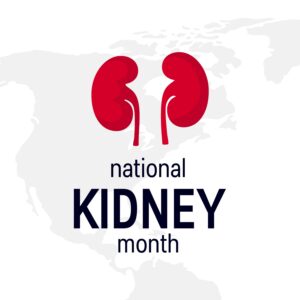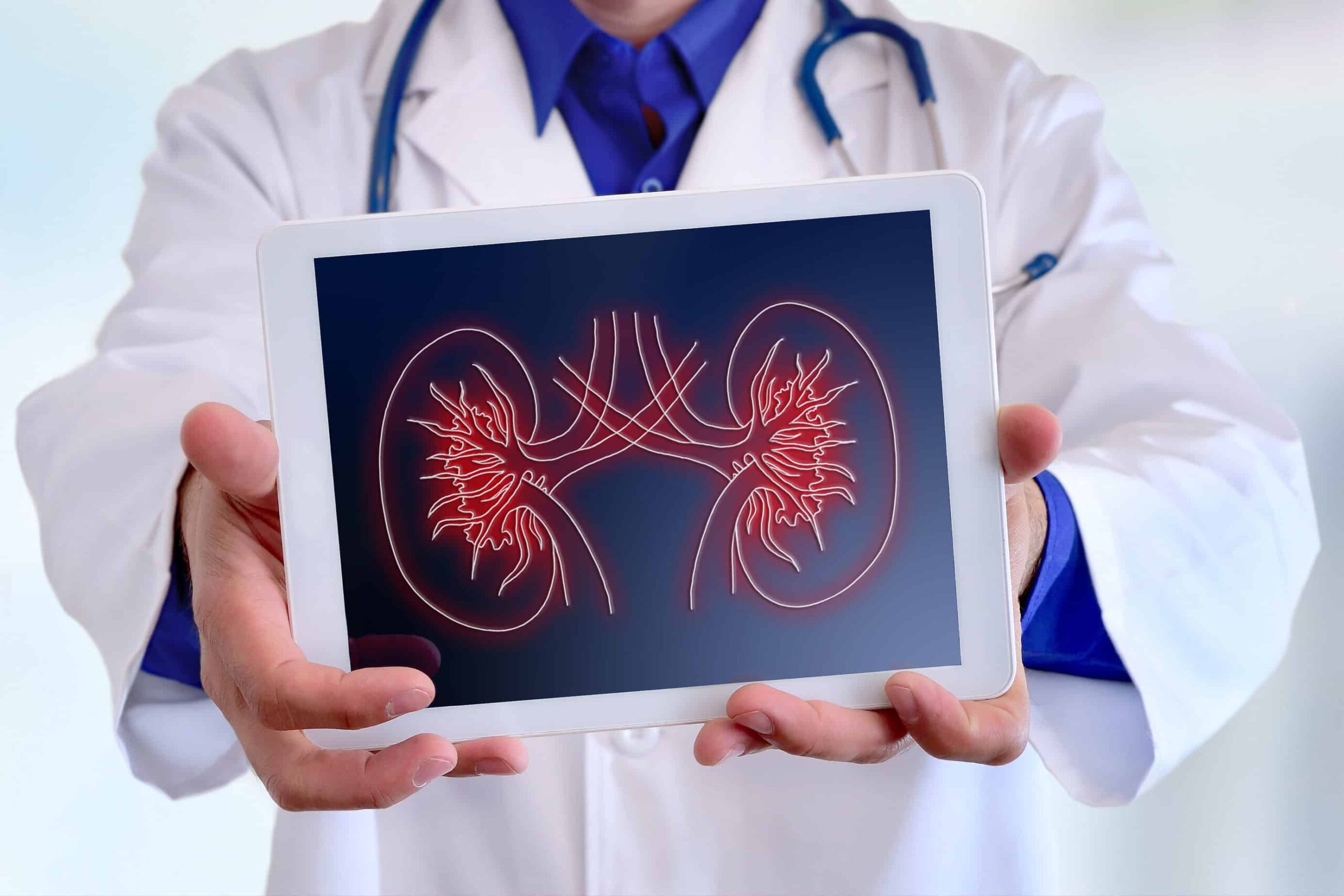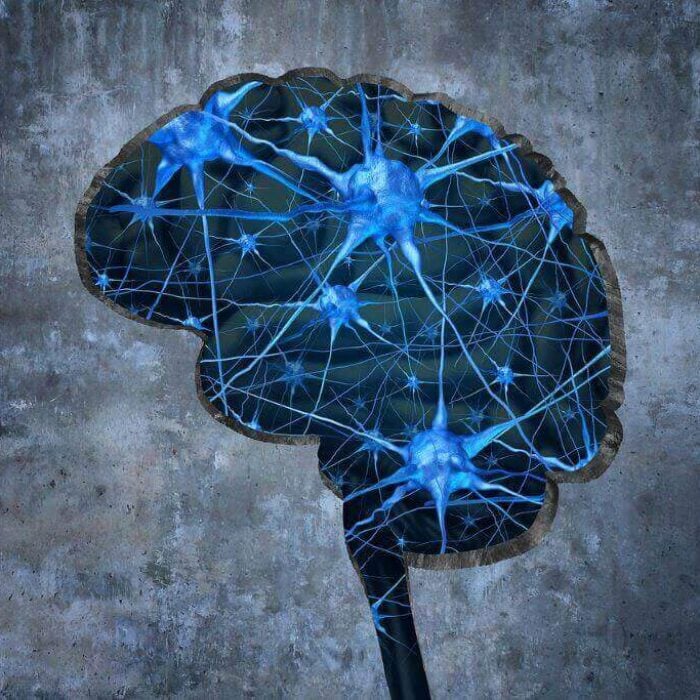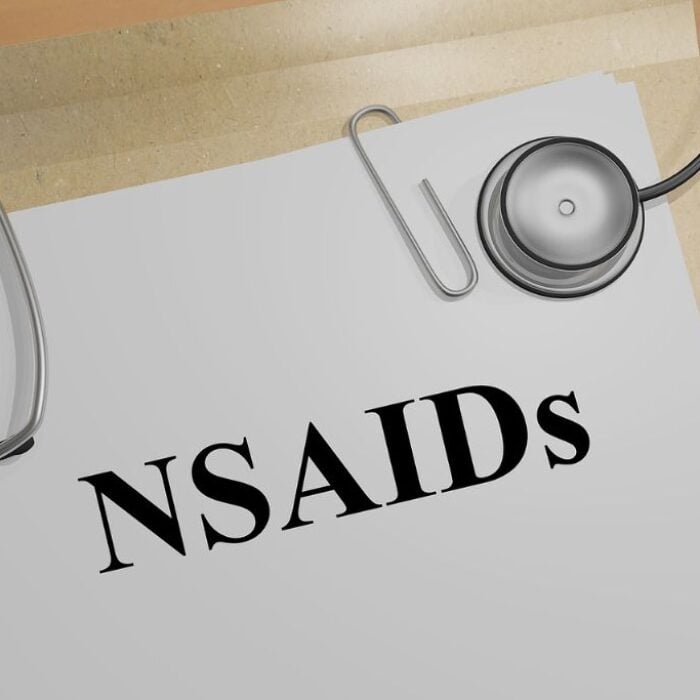 According to the National Kidney Foundation, of the more than 30 million Americans who have kidney damage, most don’t even know they have it. Often, no symptoms of kidney disease are apparent until the disease has progressed. National Kidney Month this March is an opportunity to shed light on the damage opioid use can do to kidneys so that people can get treatment as early as possible before kidney damage progresses to a critical point.
According to the National Kidney Foundation, of the more than 30 million Americans who have kidney damage, most don’t even know they have it. Often, no symptoms of kidney disease are apparent until the disease has progressed. National Kidney Month this March is an opportunity to shed light on the damage opioid use can do to kidneys so that people can get treatment as early as possible before kidney damage progresses to a critical point.
Learn More: Opioid Side Effects and Risks
Kidney Function
Most people have two kidneys: organs that filter waste out of 200 liters of your blood per day, including removing drugs from your body. They release hormones that regulate blood pressure and produce a form of vitamin D that promotes bone health. Additionally, they control:
- Fluids
- Salt content
- Potassium content
- Acid content
- Production of red blood cells
How Opioid Use Can Harm Your Kidneys
Both prescription opioids and illicit opiate drugs can, directly and indirectly, cause internal damage, including to the kidneys. Additives in street heroin, for example, can include substances that do not readily dissolve, clogging the blood vessels leading to organs such as the kidneys and causing infection or death of small patches of organ cells, according to the National Institute on Drug Abuse.
How Opioids Increase the Risk for Kidney Damage
Evidence suggests a link between opioid use and kidney disease, according to a 2017 International Journal of Molecular Sciences study. Although patients with kidney disease can take opioids responsibly for pain control, according to the survey, renal toxicity appears amid inappropriate use, such as in the following contexts:
- Higher-than-needed doses
- In the presence of other toxins
- With pre-existing dehydration
- Prostate enlargement
Chronic kidney disease could result from intravenous opioid use or other routes of administration. For example, the study notes that skin-popping can result in amyloidosis. This abnormal protein build-up can lead to organ failure, and heroin-associated kidney damage can cause end-stage renal disease.
Opioid overdose can result in acute kidney injury, the study also noted, due to the following conditions:
- Dehydration
- Hypotension (low blood pressure)
- Rhabdomyolysis (the breakdown of muscle tissue resulting in muscle fiber contents releasing into the blood)
- Urinary retention
What to Know If You Have Kidney Damage?
Sometimes patients suffering from kidney damage take opioids following surgery for palliative care. Prescription opioids are analgesic drugs to alleviate pain by attaching to the brain and spinal cord receptors. Examples of synthetic opioid derivatives prescribed for kidney patients include hydrocodone and oxycodone.
Because prescription opioids can be addictive, patients must follow their doctor’s instructions for appropriate use. The National Kidney Foundation recommends the following tips for kidney disease patients who have been prescribed opioids:
- Communicate with your doctors and healthcare providers regularly about your medication use.
- Never take more medication than you what is on your prescription. If you are not getting enough pain relief, talk to your doctor.
- Please do not share your medications with anyone and keep them away from children.
- Avoid drinking alcohol.
- Talk to your doctor right away if you have any side effects such as constipation, breaking problems, or having had substance abuse issues in the past. Your doctor may discuss alternative treatments for you or recommend methods to lessen the opioid side effects.
Read: 5 Ways to Relieve Opiate-Induced Constipation
Link Between Dialysis Patient Opioid Use and Death
As kidney disease advances, it can lead to kidney failure and end-stage renal disease. In recent years, aggressive pain treatment for ESRD included prescription opioids. A 2017 study on opioid prescription morbidity and mortality in dialysis patients published in the Journal of the American Society of Nephrology found that patients with short-term (less than 90 days) and chronic opioid prescriptions had increased mortality, dialysis discontinuation, and hospitalization. The study also found that:
- More than 60 percent of dialysis patients had at least one opioid prescription every year.
- Approximately 20 percent of patients had a chronic (90-day supply or more) opioid prescription each year, usually for hydrocodone, oxycodone, or tramadol.
- Opioid drugs can be associated with mortality, most associated with worsened morbidity.
The study concluded that opioid drug prescriptions for dialysis patients are associated with an increased risk of death, dialysis discontinuation, and hospitalization. It is recommended to consider efforts to treat pain effectively while decreasing opioid prescriptions.
Kidney Health
With more awareness of kidney health, National Kidney Month is an excellent time to get your kidneys checked by a doctor and consult a physician or detoxification specialist about how to get off opioids safely.
People in the early stages of kidney damage or disease may not show symptoms. Many people don’t find out they have kidney disease until their kidneys are permanently damaged, which is why you should get tested early, according to the National Institute of Diabetes and Digestive and Kidney Diseases. The institute recommends asking your doctor:
- Have I been tested for kidney disease?
- How healthy are my kidneys?
- How often should I get my kidneys checked?
- What should I do to keep my kidneys healthy?
One thing you might find you can do to protect your kidney health is to stop using opioids. If you require acute pain management, talk to your doctor about your pain management options. Suppose you do not need opioids for pain management, such as abusing a prescription, self-medicating for other reasons, or using illicit opiates. In that case, you could discuss your detoxification treatment options with a specialist.
Opioid Treatment Options
Fast, Safe, and Effective Rapid Detox Treatment
Rapid detox is a method of treatment to end physical opioid dependence. In this treatment conducted in a hospital, you, the patient, receive sedation for a relatively short period while a medical doctor flushes the opioids from your system, pushing them off the opioid receptors. When you wake up, you are no longer physically dependent, you’ve already experienced the worst of the acute withdrawal, and you can move on to a short recovery period and adjusting to an opioid-free life.
Similarly, non-anesthesia medical detox involves detoxification in a hospital under the supervision of a medical doctor. Both treatments ensure the safety and effectiveness of the detox process by providing medical care throughout treatment.
A leader in rapid detox treatment is Waismann Method®, which has been successfully performing detox treatments on thousands of patients for over 21 years. Waismann Method® enhanced its approach to rapid detox and non-anesthesia medical detox by using superior medical protocols tailored to each patient’s unique medical and emotional needs. The process begins with a comprehensive medical evaluation, including assessing organ function, so that the medical team can appropriately monitor all vitals throughout treatment. This approach, combined with the treatment center’s safety standards and an unmatched level of experience, dramatically increases the patient’s likelihood of completing detox to become opioid-free.
Keep Reading: Why Waismann Method® Is the Leading Opioid Detoxification Treatment Center.
By reversing the physical dependence on opioids, you are freed of that burden to follow treatment courses for underlying drug dependence causes. And without having to process opioids, your kidney health, and health in general — can improve.
Published on March 1, 2019
Disclaimer
Reviewed by Clare Waismann, CATC, Founder of Waismann Method® Advanced Treatment for Opiate Dependence
All Opiates.com blog topics are selected and written based on high editorial quality standards, including cited sources. Articles are reviewed by Clare Waismann, CATC, and founder of Waismann Method®, for accuracy, credibility, and relevancy to the audience. Clare Waismann as an authority and expert on opioid dependence, opioid use disorder, substance dependence, detoxification treatments, detox recovery, and other topics covered on the Opiates.com blog. Waismann Method®’s specialists also review some articles depending on their field of expertise. For additional information and disclaimers regarding third-party sources and content for informational purposes only, please see our Terms of Service.















